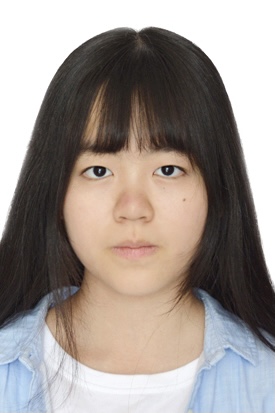Carnegie Mellon University
MSR Thesis Talk: Siddarth Venkatraman
Title: Latent Skill Models for Offline Reinforcement Learning Abstract: Offline reinforcement learning (RL) holds promise as a means to learn high-value policies from a static dataset, without the need for further environment interactions. However, a key challenge in offline RL lies in effectively stitching portions of suboptimal trajectories from the static dataset while avoiding extrapolation [...]
Predictive Scene Representations for Embodied Visual Search
Abstract: My research advances embodied AI by developing large-scale datasets and state-of-the-art algorithms. In my talk, I will specifically focus on the embodied visual search problem, which aims to enable intelligent search for robots and augmented reality (AR) assistants. Embodied visual search manifests as the visual navigation problem in robotics, where a mobile agent must efficiently navigate [...]
Long-Tailed 3D Detection via Multi-Modal Fusion
Abstract: Contemporary autonomous vehicle (AV) benchmarks have advanced techniques for training 3D detectors, particularly on large-scale LiDAR data. Surprisingly, although semantic class labels naturally follow a long-tailed distribution, these benchmarks focus on only a few common classes (e.g., pedestrian and car) and neglect many rare classes in-the-tail (e.g., debris and stroller). However, in the real [...]
TBA
MSR Thesis Talk: Eric Schneider
Title: Phenotyping and Skeletonization for Agricultural Robotics Abstract: Scientific phenotyping of plants is a crucial aspect of experimental plant breeding. By accurately measuring plant characteristics, phenotyping plays a vital role in the development of new plant varieties that are better adapted to specific environments and have improved yield, quality, and resistance to stress and disease. In [...]
MSR Thesis Talk: Shivesh Khaitan
Zoom Link: https://cmu.zoom.us/j/95273358670?pwd=Z09Jc3g1aDV1dTdTMEVUWUwxcUZPQT09 Meeting ID: 952 7335 8670 Passcode: 050721 Title: Exploring Reinforcement Learning approaches for Safety Critical EnvironmentsAbstract: Reinforcement Learning (RL) has emerged as a powerful paradigm for addressing challenging decision-making and robotic control tasks. By leveraging the principles of trial-and-error learning, RL algorithms enable agents to learn optimal strategies through interactions with an environment. However, [...]
MSR Thesis Talk: Ravi Tej Akella
Title: Distributional Distance Classifiers for Goal-Conditioned Reinforcement Learning Abstract: Autonomous systems are increasingly being deployed in stochastic real-world environments. Often, these agents are trying to find the shortest path to a commanded goal. But what does it mean to find the shortest path in stochastic environments, where every strategy has a non-zero probability of failing? At [...]
MSR Thesis Talk: Seth Karten
Title: Emergent Communication and Decision-Making in Multi-Agent Teams Abstract: Explicit communication among humans is key to coordinating and learning. In multi-agent reinforcement learning for partially-observable environments, agents may convey information to others via learned communication, allowing the team to complete its task. However, agents need to be able to communicate more than simply referential messages [...]
MSR Thesis Talk: Sashank Tirumala
Title: Tactile Sensing applied to deformable object manipulation Abstract: The application of robotic manipulation of deformable materials, such as cloth, spans various sectors including fabric manufacturing and domestic laundry management. Historically, most methodologies have employed vision-based sensors as the proprioceptive input to robot policies. However, this study aims to explore an alternate route by leveraging [...]
Special RI Seminar
Title: Testing, Analysis, and Specification for Robust and Reliable Robot Software Abstract: Building robust and reliable robotic software is an inherently challenging feat that requires substantial expertise across a variety of disciplines. Despite that, writing robot software has never been easier thanks to software frameworks such as ROS: At its best, ROS allows newcomers to assemble simple, [...]
MSR Thesis Talk: Zhizhu Zhao
Title: Distilling View-conditioned Diffusion for 3D Reconstruction Abstract: We propose a 3D neural mode-seeking formulation that combines probabilistic generation of unseen regions with faithful reprojection of seen regions in a consistent 3D representation. Feature reprojection methods (NerFormer, PixelNeRF) are 3D consistent, but fail to hallucinate unseen regions. Image generation methods (ViewFormer) generate plausible hallucinations, but generated [...]
Differentiable Fluid-Structure Interaction for Robotics
Abstract: We present Aquarium, a differentiable fluid-structure interaction solver for robotics that offers stable simulation, accurately coupled fluid-robot physics in two dimensions, and full differentiability with respect to fluid and robot states and parameters. Aquarium achieves stable simulation with accurate flow physics by directly integrating over the incompressible Navier-Stokes equations using a fully implicit Crank-Nicolson [...]
MSR Thesis Talk: Khiem Vuong
Title: Scaling up Camera Calibration and Amodal 3D Object Reconstruction for Smart Cities Abstract: Smart cities integrate thousands of outdoor cameras to enhance urban infrastructure, but their automated analysis potential remains untapped due to various challenges. Firstly, the lack of accurate camera calibration information, such as its intrinsics parameters and external orientation, restricts the measurement [...]
From Reinforcement Learning to Robot Learning: Leveraging Prior Data and Shared Evaluation
Abstract: Unlike most machine learning applications, robotics involves physical constraints that make off-the-shelf learning challenging. Difficulties in large-scale data collection and training present a major roadblock to applying today’s data-intensive algorithms. Robot learning has an additional roadblock in evaluation: every physical space is different, making results across labs inconsistent. Two common assumptions of the robot [...]
MSR Thesis Talk: Tianyuan Zhang
Title: Surface Ripples: Analyzing Transient Vibrations on Object's Surfaces Abstract: The subtle vibrations on an object's surface contain information about its physical properties and interaction with the environment. Prior works imaged surface vibration to recover the object's material properties via modal analysis, which discards the transient vibrations propagating immediately after the object is disturbed. In this [...]
MSR Thesis Talk: Anurag Ghosh
Title: Learned Two-Plane Perspective Prior based Image Resampling for Efficient Object Detection Abstract: Real-time efficient perception is critical for autonomous navigation and city scale sensing. Orthogonal to architectural improvements, streaming perception approaches have exploited adaptive sampling improving real-time detection performance. In this work, we propose a learnable geometry-guided prior that incorporates rough geometry of the [...]
MSR Thesis Talk: David Russell
Title: Using Drones and Remote Sensing to Understand Forests with Limited Labeled Data Abstract: Drones and remote sensing can provide observations of forests at scale, but this raw data needs to be interpreted to further scientific understanding and inform effective management decisions. This thesis studies two problems under the realistic constraint of limited domain-specific training [...]
MSR Thesis TallK: Aarrushi Shandilya
Title: Lights, Camera, Render: Neural Fields for Structured Lighting Abstract: 3D scene reconstruction from 2D image supervision alone is an under-constrained problem. Recent neural rendering frameworks have made great strides in learning 3D scene representations to enable novel view synthesis, but they struggle to reconstruct geometry of low-texture regions or from sparse views. The prevalence of active [...]
Building 4D Models of Objects and Scenes from Monocular Videos
Abstract: We explore how to infer the time-varying 3D structures of generic, deformable objects, and dynamic scenes from monocular videos. A solution to this problem is essential for virtual reality and robotics applications. However, inferring 4D structures given 2D observations is challenging due to its under-constrained nature. In a casual setup where there is neither [...]
MSR Thesis Talk: Anirudha Ramesh
Title: Learning to See in the Dark and Beyond Abstract: Robotic Perception in diverse domains such as low-light scenarios remains a challenge, even upon the employment of new sensing modalities like thermal imaging and specialized night-vision sensors. This is largely due to the high difficulty in obtaining labeled data for certain tasks. In this work, [...]
MSR Thesis Talk: Mateo Guaman Castro
Title: Self-Supervised Costmap Learning for Off-Road Vehicle Traversability Abstract: Estimating terrain traversability in off-road environments requires reasoning about complex interaction dynamics between the robot and these terrains. However, it is challenging to build an accurate physics model, or create informative labels to learn a model in a supervised manner, for these interactions. We propose a method [...]
TBA
Learning to Manipulate Using Diverse Datasets
Abstract: Manipulation is a key challenge in the robotic fields that impedes the deployment of robots in real-world scenarios. While notable advancements have been made in solving high/mid level planning problems, such as decomposing tasks (e.g. "bring me a bottle") into primitives (e.g. "pick up bottle"), the acquisition of fundamental manipulation primitives remains a difficult [...]
MSR Thesis Talk: Gaoyue Zhou
Title: On Generalization and Benchmarking on Physical Robots Abstract: Robotics research has seen significant advancements; however, the field remains predominantly demo-driven, making direct comparisons between methods difficult without replicating them on individual setups. While many simulation benchmarks exist, they usually feature contrived datasets and do not accurately reflect real-world performance. In my thesis, we [...]
Robotics Institute Faculty Retreat
RI Faculty, please hold the date for the 2023 Robotics Institute Faculty Retreat. Invitations and agenda info to follow when it becomes available.





















